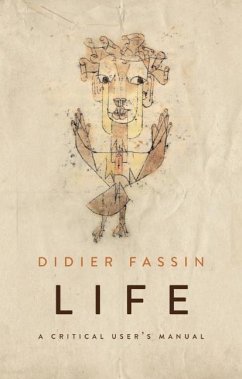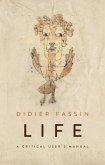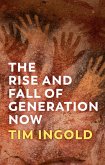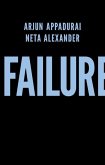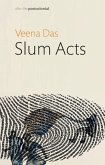How can we think of life in its dual expression, matter and experience, the living and the lived? Philosophers and, more recently, social scientists have offered multiple answers to this question, often privileging one expression or the other - the biological or the biographical. But is it possible to conceive of them together and thus reconcile naturalist and humanist approaches? Using research conducted on three continents and engaging in critical dialogue with Wittgenstein, Benjamin, and Foucault, Didier Fassin attempts to do so by developing three concepts: forms of life, ethics of life, and politics of life.
In the conditions of refugees and asylum seekers, in the light of mortality statistics and death benefits, and via a genealogical and ethnographical inquiry, the moral economy of life reveals troubling tensions in the way contemporary societies treat human beings. Once the pieces of this anthropological composition are assembled, like in Georges Perec's jigsaw puzzle, an image appears: that of unequal lives.
Hinweis: Dieser Artikel kann nur an eine deutsche Lieferadresse ausgeliefert werden.
In the conditions of refugees and asylum seekers, in the light of mortality statistics and death benefits, and via a genealogical and ethnographical inquiry, the moral economy of life reveals troubling tensions in the way contemporary societies treat human beings. Once the pieces of this anthropological composition are assembled, like in Georges Perec's jigsaw puzzle, an image appears: that of unequal lives.
Hinweis: Dieser Artikel kann nur an eine deutsche Lieferadresse ausgeliefert werden.
"It needs the sharp eye of an anthropologist, the empirical scrutiny of a sociologist, and the imagination of a moral philosopher to decipher the hidden grammar by which the physical life of human beings is measured in our globalized world. Didier Fassin, impressively combining all these talents in one mind, is to my knowledge the first scholar to have accomplished this enormous task - a must read for everyone interested in the dark side of globalization."
Axel Honneth, Goethe University and Columbia University
"At a time of growing social inequality, Didier Fassin boldly addresses the persistently unequal valuation of human lives. With sharp philosophical insight, grounded in vivid ethnographic detail, the book uncovers the moral and political processes involved in our treatment of human life. Compassionate and inspiring, Life contributes to scholarly debates and will at the same time appeal to a wide audience."
Viviana A. Zelizer, Princeton University
Axel Honneth, Goethe University and Columbia University
"At a time of growing social inequality, Didier Fassin boldly addresses the persistently unequal valuation of human lives. With sharp philosophical insight, grounded in vivid ethnographic detail, the book uncovers the moral and political processes involved in our treatment of human life. Compassionate and inspiring, Life contributes to scholarly debates and will at the same time appeal to a wide audience."
Viviana A. Zelizer, Princeton University

